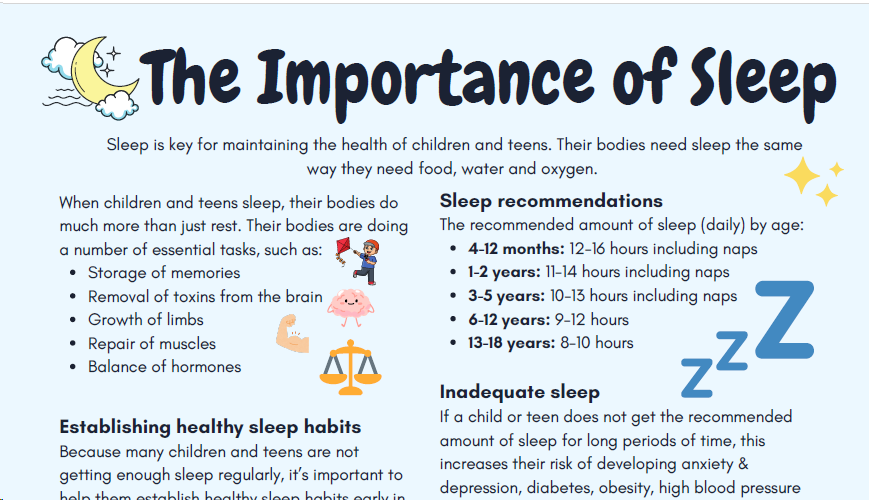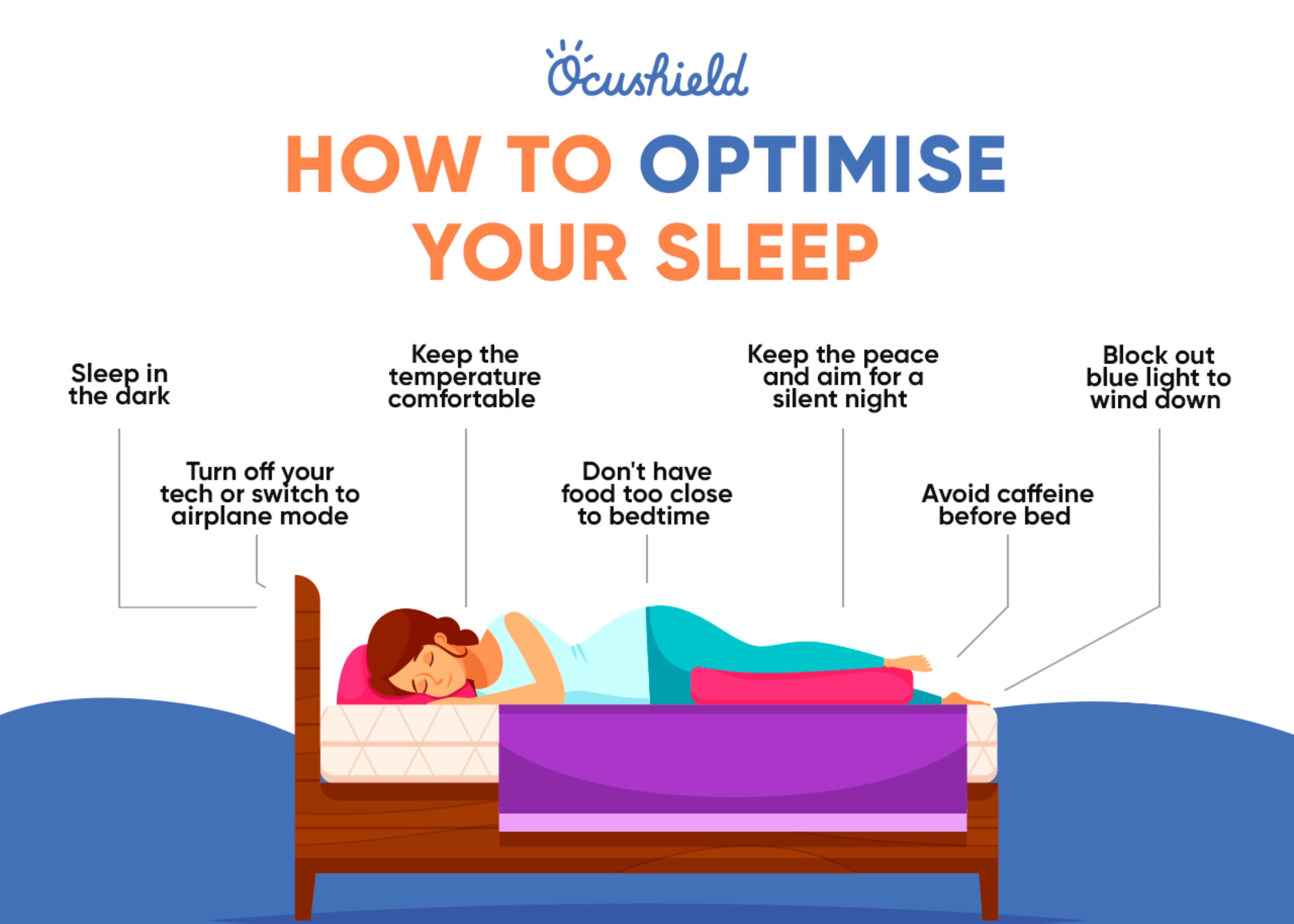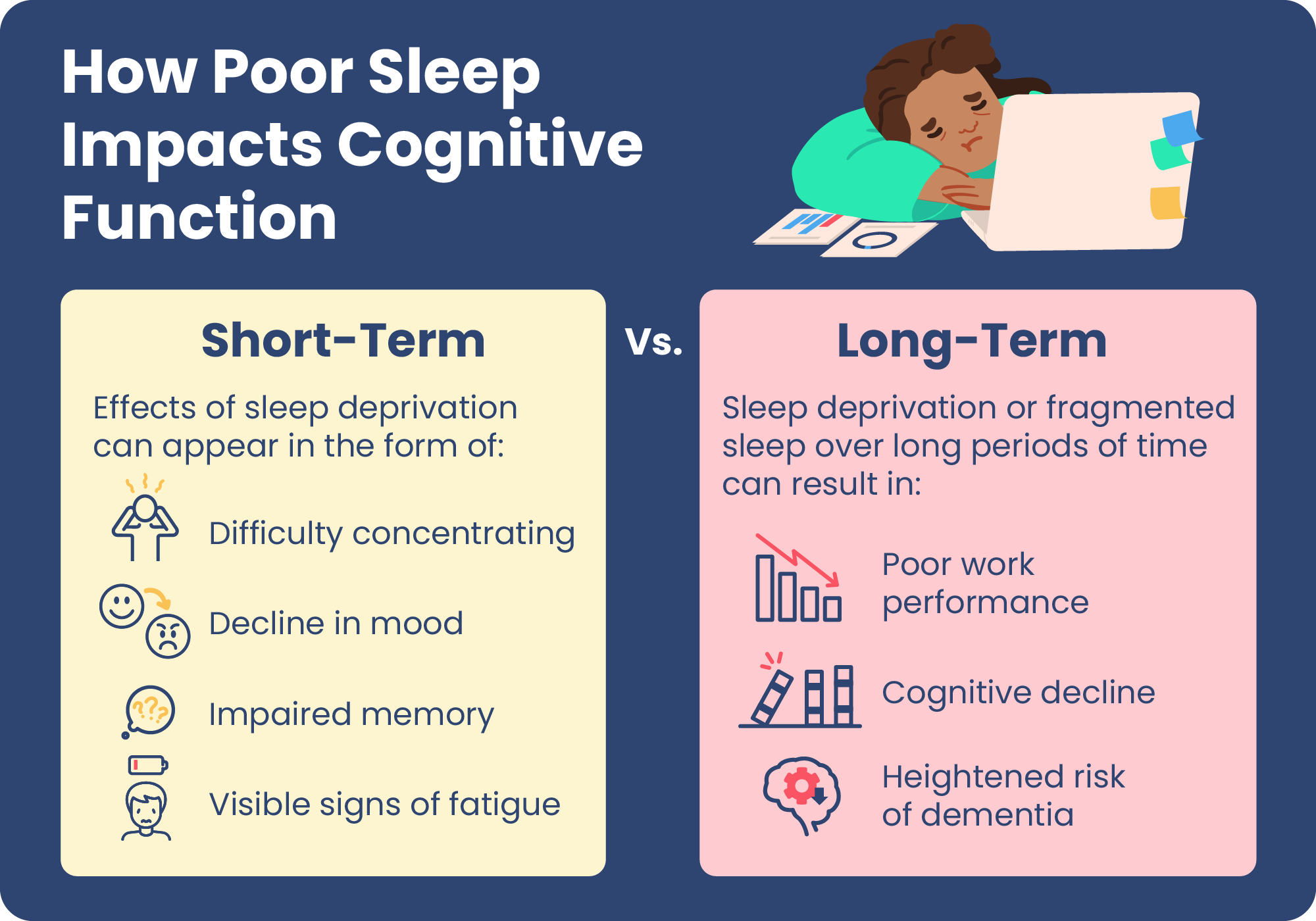Sleep is a vital cornerstone of human health, influencing nearly every aspect of our lives. From physical well-being to emotional resilience, the quality and duration of our sleep have a profound impact. Yet, in our fast-paced modern world, sleep often takes a backseat, leading to widespread sleep deprivation and its detrimental effects. Fortunately, emerging research and real-world applications of sleep optimization techniques are changing lives for the better. Let’s dive into the transformative power of sleep optimization and explore how it has improved countless lives, backed by insights from scientific studies, including those discussed in PubMed research.
The best bridge between despair and hope is a good night’s sleep.
E. Joseph Cossman, Entrepreneur and author
The Importance of Sleep: More Than Just Rest
Sleep is far from a passive state—it’s an active process where the brain and body undergo critical restoration and repair. Adequate sleep is crucial for:

- Cognitive Function: Enhancing memory consolidation, learning, and problem-solving skills.
- Emotional Stability: Supporting mood regulation and reducing the risk of anxiety and depression.
- Physical Health: Boosting immune function, maintaining cardiovascular health, and aiding in weight management.
Despite its importance, millions of people fail to get the recommended 7–9 hours of sleep per night. This sleep deficit has been linked to chronic conditions like heart disease, diabetes, and mental health disorders. However, with the rise of sleep optimization strategies, this narrative is rapidly changing.
What Is Sleep Optimization?
Sleep optimization refers to implementing habits and techniques to improve both the quality and quantity of sleep. These practices target various factors affecting sleep, such as environmental, behavioral, and physiological influences. Key sleep optimization strategies include:
1. Consistent Sleep Schedules
Maintaining a regular sleep-wake cycle trains the body’s internal clock, or circadian rhythm. Going to bed and waking up at the same time daily, even on weekends, can lead to deeper and more restorative sleep.
2. Creating a Sleep-Friendly Environment
A conducive sleep environment includes a dark, quiet, and cool bedroom. Reducing noise and light, using blackout curtains, and optimizing mattress and pillow comfort can significantly enhance sleep quality.
3. Limiting Screen Time Before Bed
Blue light from screens suppresses the production of melatonin, the hormone that regulates sleep. Avoiding electronic devices at least an hour before bedtime can improve the body’s readiness for sleep.
4. Practicing Relaxation Techniques
Activities like meditation, yoga, or deep-breathing exercises can calm the mind and body, helping to ease the transition to sleep.
5. Monitoring Diet and Exercise
Eating a light dinner, avoiding caffeine or alcohol in the evening, and incorporating regular physical activity are all associated with better sleep.
How Sleep Optimization Transforms Lives
The adoption of sleep optimization techniques has led to remarkable transformations, both on an individual and societal level. Here are some examples backed by scientific findings and real-world outcomes:

1. Improved Workplace Performance
Sleep optimization has demonstrated significant benefits in professional settings. A study highlighted in the Journal of Occupational and Environmental Medicine showed that employees participating in a sleep optimization program reported a 20% increase in productivity and a 15% decrease in absenteeism. By improving alertness and decision-making, these individuals not only advanced their careers but also enhanced workplace morale.
2. Enhanced Mental Health
One of the most profound benefits of optimizing sleep is its impact on mental health. Research from PubMed reveals that individuals who implemented sleep optimization practices experienced lower levels of anxiety and depression. Techniques such as mindfulness meditation before bed and maintaining a regular sleep schedule were particularly effective.
Real-life examples abound of people overcoming insomnia or sleep disturbances through these techniques. For instance, Sarah, a young professional struggling with chronic anxiety, reported a significant reduction in her symptoms after incorporating nightly mindfulness exercises and maintaining a consistent sleep schedule.
3. Physical Health Benefits
Adequate sleep contributes to weight management, heart health, and immune system resilience. A study published in the Journal of Sleep Research found that participants who optimized their sleep through diet, exercise, and relaxation techniques lost 12% more weight over six months compared to those who didn’t. Furthermore, their biomarkers for inflammation—a risk factor for heart disease—improved significantly.
For example, John, a 45-year-old entrepreneur, reversed his prediabetic condition and improved his blood pressure by prioritizing seven hours of quality sleep nightly. His transformation underscores the power of sleep in fostering long-term health.
4. Strengthened Relationships
Quality sleep doesn’t just affect the individual—it also impacts interpersonal relationships. Sleep-deprived individuals often experience irritability and emotional volatility, which can strain relationships. Sleep optimization has been shown to improve emotional regulation and empathy, strengthening bonds with loved ones.
The Science of Sleep Optimization
Scientific research continues to uncover the mechanisms behind these life-changing benefits. A 2020 study discussed in PubMed explored how sleep affects the brain’s glymphatic system, responsible for clearing toxins during deep sleep. Disruptions to this process have been linked to cognitive decline and neurodegenerative diseases like Alzheimer’s. By optimizing sleep, individuals can potentially safeguard their cognitive health.
Sleep is the golden chain that ties health and our bodies together.
Thomas Dekker, English dramatist
Another study highlighted the role of sleep in emotional processing. During REM (rapid eye movement) sleep, the brain processes and integrates emotional experiences, which helps in coping with stress and trauma. Sleep optimization techniques that increase REM sleep duration, such as relaxation exercises and consistent bedtime routines, have shown remarkable improvements in emotional resilience.
Overcoming Barriers to Sleep Optimization
Despite its benefits, sleep optimization can be challenging to implement. Common barriers include:

- Irregular Work Schedules: Shift workers often struggle to maintain consistent sleep patterns.
- Stress and Anxiety: Racing thoughts can make it difficult to fall asleep.
- Technology Overuse: Smartphones and other devices are a major source of sleep disruption.
To overcome these challenges, experts recommend personalized approaches. For instance, shift workers can use blackout curtains and light therapy to adjust their circadian rhythms. Those with anxiety may benefit from cognitive behavioral therapy for insomnia (CBT-I), a proven method for addressing sleep disturbances.
Success Stories: Sleep Optimization in Action
Case Study 1: The Athlete
Emily, a professional athlete, struggled with performance dips due to chronic sleep deprivation. By working with a sleep coach, she adopted a consistent bedtime routine, avoided caffeine after noon, and used a sleep tracker to monitor her patterns. Within three months, Emily’s reaction times improved by 25%, and she reported feeling more energized during competitions.
Case Study 2: The Busy Parent
Tom, a father of two, often sacrificed sleep to juggle work and family responsibilities. After experiencing burnout, he began incorporating relaxation exercises and limiting late-night screen time. These changes allowed him to sleep an additional 90 minutes per night, which improved his mood and strengthened his relationship with his children.
Final Thoughts
Sleep optimization is more than a trend—it’s a transformative approach to health and well-being. By adopting simple yet effective techniques, individuals can unlock the life-changing benefits of quality sleep. Whether it’s enhancing productivity, boosting mental health, or improving physical fitness, the potential of sleep optimization is boundless.
The journey to better sleep starts with small, actionable steps. Set a regular sleep schedule, create a calming bedtime routine, and prioritize your sleep environment. As countless success stories and scientific research show, these efforts can lead to a healthier, happier, and more fulfilling life.
So, what are you waiting for? Start optimizing your sleep today and experience the life-changing impact firsthand.
Recent Insights into How Sleep Optimization Techniques Changed Lives
“Cognitive Behavioral Therapy for Insomnia (CBT-I) Reduces Depression in Sleep-Deprived Individuals”
A 2023 study demonstrated that CBT-I, a structured therapeutic approach to improving sleep, significantly alleviated depressive symptoms in patients struggling with chronic sleep issues. Participants who adopted this technique reported improved sleep patterns, enhanced mood, and greater emotional stability within six weeks.
Read the full study here.
“Blue Light Blocking Glasses Improve Sleep Quality in Shift Workers”
Research published in 2022 highlighted that wearing blue light-blocking glasses in the evenings helped shift workers reset their circadian rhythms. Participants experienced better sleep onset and duration, leading to improved focus and reduced fatigue during waking hours.
Explore the findings here.
“Weighted Blankets Reduce Anxiety and Enhance Deep Sleep”
A randomized trial in 2023 revealed that weighted blankets promote relaxation by activating the parasympathetic nervous system. Cited benefits included reductions in sleep onset latency and increased time spent in deep, restorative sleep, especially among individuals with insomnia and anxiety.
Discover more here.
“Sleep Tracking Devices Improve Health Outcomes Through Personalized Feedback”
Wearable devices equipped with sleep tracking capabilities have revolutionized how individuals monitor and optimize their sleep. A 2021 study found that users who adjusted their habits based on device insights saw a 30% improvement in sleep efficiency and a 25% reduction in daytime fatigue.
Learn more about this innovation.
“Mindfulness Meditation Increases REM Sleep and Emotional Resilience”
A 2022 study linked mindfulness meditation with improved REM sleep quality, the phase crucial for emotional regulation. Participants practicing nightly mindfulness techniques reported fewer stress-related awakenings and enhanced emotional balance.
Explore the research here.
“Temperature-Controlled Mattresses Aid in Sleep Optimization”
Temperature regulation during sleep has been a game-changer for insomniacs. A 2023 trial showed that mattresses with cooling and heating features helped individuals maintain optimal body temperatures, improving sleep continuity and reducing nighttime awakenings.
Read the study here.
“Intermittent Fasting Synchronizes Circadian Rhythms for Better Sleep”
Intermittent fasting has emerged as a dual-purpose health tool, promoting metabolic health and better sleep. A 2022 study found that fasting windows aligned with natural light-dark cycles improved circadian regulation, helping individuals fall asleep faster and wake up refreshed.
Find the details here.
“Smart Lighting Systems Enhance Circadian Alignment”
Smart lighting that mimics natural light transitions has been shown to improve sleep quality. A 2023 study revealed that participants exposed to dimmer, warmer lighting in the evening reported fewer sleep disturbances and a better overall mood.
Learn more about this approach.
“Yoga Nidra Boosts Sleep Depth and Reduces Stress Hormones”
Yoga Nidra, a guided meditation practice, was studied in 2022 for its effects on sleep. Findings showed a 40% increase in slow-wave sleep (deep sleep) and significant reductions in cortisol levels among participants practicing it nightly.
Discover the insights here.
“Magnesium Supplementation Enhances Sleep Quality in Older Adults”
A 2023 study focusing on magnesium’s role in sleep optimization found that older adults supplementing with magnesium reported fewer nighttime awakenings and improved sleep efficiency. Magnesium’s calming effect on the nervous system was identified as the key factor.
Read the full analysis here.
These insights underscore the transformative power of sleep optimization techniques in improving lives. From wearable technologies to mindful practices, these methods offer innovative solutions for better sleep and, in turn, a healthier, more balanced life.

























